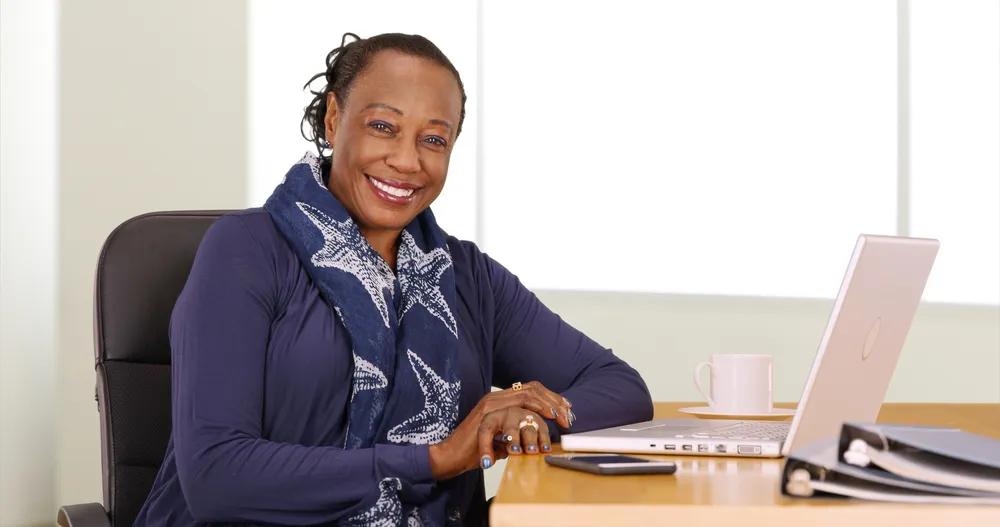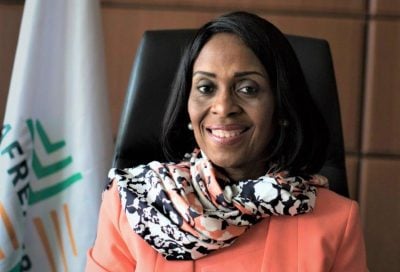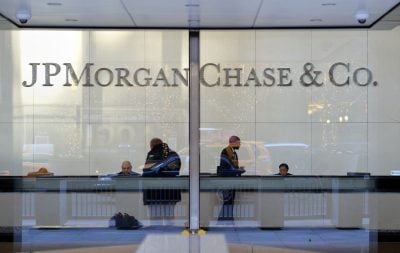This article was produced with the support of Ecobank
Pan-African bank Ecobank has launched its Ellevate Programme to support businesses in Africa developed, managed and owned by women. It is also targeting those with a high percentage of female board members, more than 30% female employees and who market their products mainly at women. Such initiatives are much needed given limited access to financing for female-led businesses across the continent.
While a third of African small and medium-sized enterprises (SMEs) are owned by women and one in four African women are self-employed, female entrepreneurs face structural and cultural barriers to expanding their businesses. They are also likely to lag behind male-owned SMEs in terms of sales and number of employees. As a result, women accounted for just 33% of the continent’s GDP in 2018 and the African Development Bank estimates the financing gap for women-led business at $42bn a year.
Rather than pilot the project in a couple of markets, Ellevate was launched on 27 November in all 33 countries where Ecobank operates. In a webinar organised to promote the launch, the CEO of Ecobank Group, Ade Ayeyemi, said that women represented an untapped economic resource in Africa because unnecessary barriers prevented them from fully participating in the economy, including poor access to external finance, their lack of perceived credibility as business owners and managers, cultural gender discrimination, and violence against women.
Ellevate offers end-to-end, differentiated business solutions, financial support, general advice and networking opportunities. Among its customised lending products, loans are offered at discounted interest rates, often with extended tenure. Minimum 50% risk sharing guarantees and asset financing schemes have also been made available, while Ecobank is allocating 10% of its loan portfolio specifically to women.
It has also launched its Emerald clubs to act as mentoring services, where established female entrepreneurs can offer advice to their up and coming counterparts. Training is being offered to female entrepreneurs through the bank’s SME Academy, which it operates in conjunction with its business schools network. The training is designed to produce “well rounded women business leaders” and will be certified by well recognised educational institutions.
Ecobank is also creating an e-commerce platform to allow female entrepreneurs to showcase their products and services. Services can also be accessed through their helpdesk.
Cash management solutions are provided to allow customers to receive and make payments, plus digital solutions to allow cashless transactions. The latter is particularly attractive as a result of efforts to reduce the frequency of direct contact between people in order to prevent the spread of Covid-19. Ecobank offers Omni Lite online banking and EcobankPay digital payments to support both aims.
Covid impact
Moreover, although the income gap between men and women is narrowing, Covid-19 has reversed some of the progress made on gender equality because women disproportionally work in insecure labour markets.
Marieme Esther Dassanou, the Coordinator of the AfDB’s Affirmative Finance Action for Women in Africa (AFAWA), said women had borne most of the burden of looking after children when schools closed to suppress spread of the coronavirus. She cited a July study that showed that 80% of women-led SMEs had been forced to temporarily or permanently close during the pandemic.
Both to help them recover and support the growth of female entrepreneurs more generally, Dassanou said that financial products and services had to be tailored to the type of businesses that women run. They need flexible financing to help them bounce back from the pandemic, so AFAWA is working with Ecobank and other financial institutions to promote access to finance, including by providing more flexible collateral options. AFAWA aims to unlock $5bn financing for women entrepreneurs within the next six years,
For its part, Ecobank hopes that Ellevate will attract at least 5,000 female-led or owned businesses a year, while lending at least $100m to them annually on favourable terms. A wide range of different companies and organisations have already been supported, from schools and hotels to fashion retailers
Personal experience
Deborah Odutayo, a television producer and executive director at Royal Roots Communication Network, agreed that “access to market finance has been a challenge for women in Africa”, preventing their businesses from meeting global standards. Changing this will require economic barriers to be broken down to help create female economic giants, thereby changing the narrative of a poor Africa, she said.
Female entrepreneurs have ability, innovation, strength and the capability to think on their feet, so they can make a real difference when supported by an enabling environment, said Odutayo. They need attractive interest rates for loans and special concessions on business registration. Odutayo said that some banks already offer lower interest rates and zero charges on business bank accounts to female entrepreneurs.
Apart from attractive products, Ecobank’s Group Executive Commercial Banking, Josephine Anan Ankomah, said that women entrepreneurs also needed a different relationship with their banks – one that is based on authentic relationships, rather than the traditional transaction-based approach. They are not looking for products but rather for solutions that help them to achieve their goals, plus networking and recognition, she explained.
Giving the webinar keynote speech, H.E. Graça Machel said that the initiative could help millions of women because there are networks of women across the continent ready to learn and be trained. The future of Africa and its economic development depends on how we empower African women, she said. Every female entrepreneur directly helped by Ellevate will encourage many more to enter the business world and become the business banking customers of the future.
 Sign in with Google
Sign in with Google 



